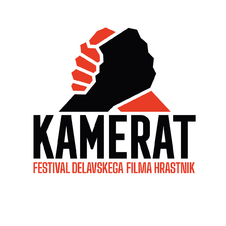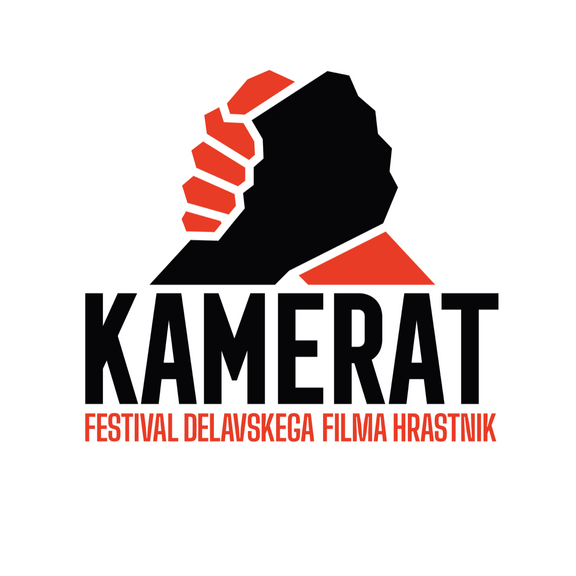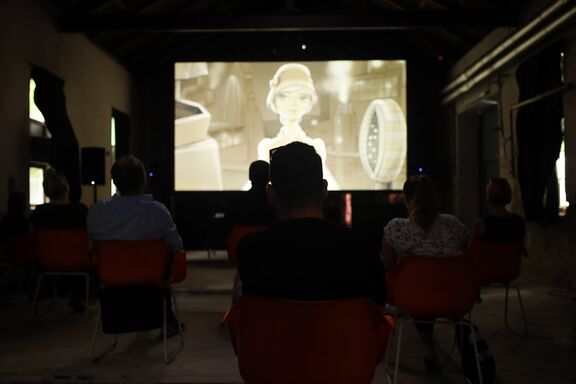|
|
| Line 39: |
Line 39: |
| | {{Teaser| | | {{Teaser| |
| | | | |
| − | KAMERAT, the inaugural and unique festival of working-class cinema in Slovenia, stands as one of the few of its kind globally. Rooted in the spirit of solidarity and inspired by the historic 1934 workers' strike in Hrastnik, the festival celebrates the demands and achievements of laborers across sectors who fought for improved working conditions. | + | [[KAMERAT Labour Film Festival]] is the first and the only labor film festival in Slovenia and among the few around the world. Friends of culture, film, and dignified, decent work have been inspired by the 1934 workers’ strike in the Slovenian city of Hrastnik, when workers from across sectors jointly demanded and achieved better working conditions. It is no coincidence that the festival takes place on the anniversary of the strike when the local community celebrates solidarity, comradeship, and the importance of organizing for common goals. The festival, named after how workers in the mine used to call each other (''kamerat'' means comrade), calls out not only a fellow worker but much more: from comradeship and solidarity to organizing for common goals – values that are nowadays pushed aside. |
| | | | |
| − | Aligned with the anniversary of the strike, KAMERAT honors the local community's commitment to solidarity, camaraderie, and the collective pursuit of shared objectives. It serves as a platform that unites friends of culture, film, and the principles of decent work, emphasizing the importance of organization and the power of community in pursuing common goals.
| + | The unique features of the festival are also its venues in a no longer operational coal mine – film projections take place in the old compressor station as well as in the tunnel, 40 meters underground. These locations add to the festival’s distinctive value, bringing workers’ films to spaces where generations of workers labored for decades and that continue to impress themselves on visitors. |
| | + | |
| | + | The purpose of the [[KAMERAT Labour Film Festival|KAMERAT]] is to use film as a mode of social criticism to investigate the position of workers at the crossroads of history and the future, changing concepts of work, and workers’ rights in various social, economic, and technological contexts. These topics are further explored through accompanying round tables, conversations with international and local workers in art, workshops, exhibitions, and educational events. As such, the festival brings together and joins forces with trade unions, movements, activists, artists, and other workers in the field of culture. |
| | | | |
| | }} | | }} |
| | | | |
| − | ==Kamerat's Vision==
| |
| − | Kamerat, the pioneering festival of working-class cinema in Slovenia and one of the few of its kind worldwide, finds its unique character in the local backdrop of historical workers' movements intertwined with traditional mining and glass workers' culture. This distinctive setting allows Kamerat to showcase films in extraordinary locations, including a mine pit, a compressor station, and, for the first time in 2023, an open-air venue—the mine shaft plateau.
| |
| − |
| |
| − | Using film as a powerful tool for social critique, the festival delves into the complex dynamics of labor, bridging the gaps between history and the future. It examines the evolving concept of work and workers' rights in diverse socio-economic and technological contexts.
| |
| − |
| |
| − | Complementing the film screenings, Kamerat offers a rich program of round table discussions, talks with local and international artists, exhibitions, and workshops. Collaborating with trade unions, movements, activists, artists, and cultural workers, Kamerat aspires to achieve national visibility while fostering dialogue and engagement around crucial social and labor-related issues.
| |
| | | | |
| | | | |
KAMERAT Labour Film Festival is the first and the only labor film festival in Slovenia and among the few around the world. Friends of culture, film, and dignified, decent work have been inspired by the 1934 workers’ strike in the Slovenian city of Hrastnik, when workers from across sectors jointly demanded and achieved better working conditions. It is no coincidence that the festival takes place on the anniversary of the strike when the local community celebrates solidarity, comradeship, and the importance of organizing for common goals. The festival, named after how workers in the mine used to call each other (kamerat means comrade), calls out not only a fellow worker but much more: from comradeship and solidarity to organizing for common goals – values that are nowadays pushed aside.
The unique features of the festival are also its venues in a no longer operational coal mine – film projections take place in the old compressor station as well as in the tunnel, 40 meters underground. These locations add to the festival’s distinctive value, bringing workers’ films to spaces where generations of workers labored for decades and that continue to impress themselves on visitors.
The purpose of the KAMERAT is to use film as a mode of social criticism to investigate the position of workers at the crossroads of history and the future, changing concepts of work, and workers’ rights in various social, economic, and technological contexts. These topics are further explored through accompanying round tables, conversations with international and local workers in art, workshops, exhibitions, and educational events. As such, the festival brings together and joins forces with trade unions, movements, activists, artists, and other workers in the field of culture.
See also
External links





